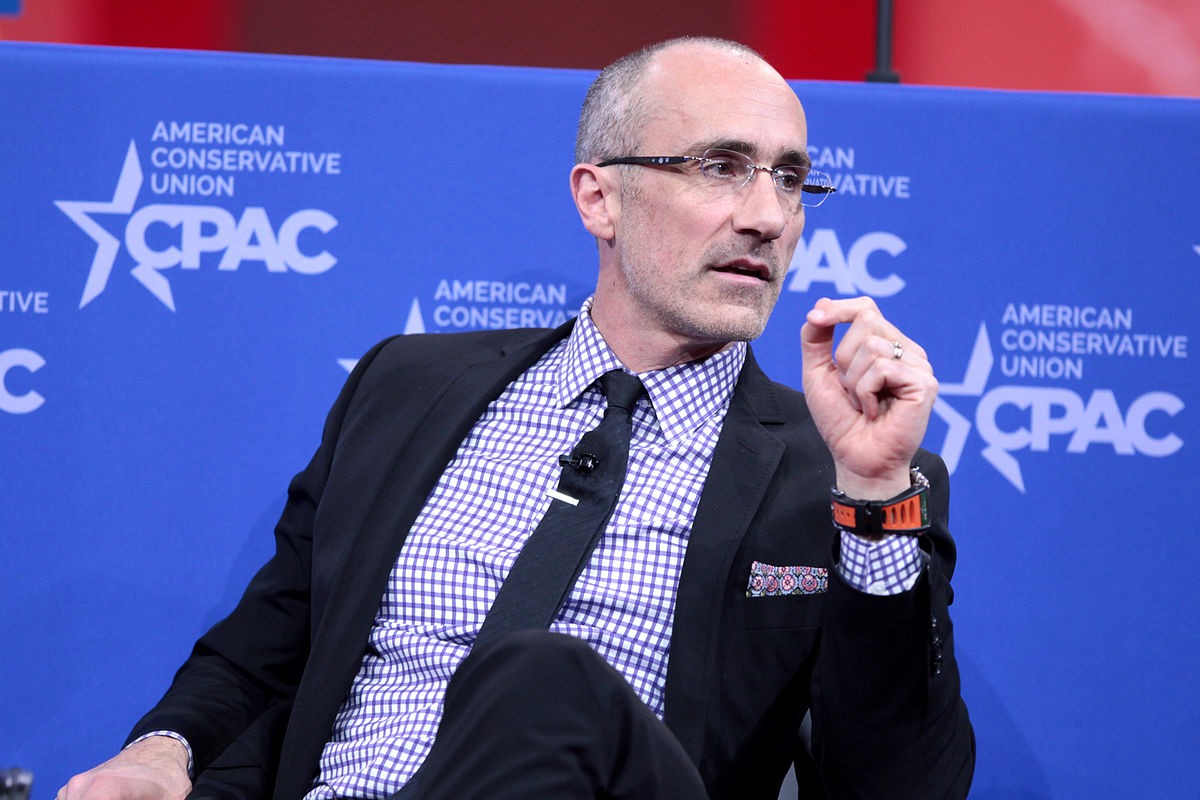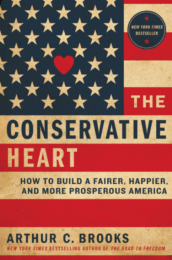Before I read Arthur Brooks’s The Conservative Heart, I wondered if he chose that title because Andrew Sullivan’s The Conservative Soul (HarperCollins, 2006) was already taken. After reading this odd work, I wondered if he chose that title because American Hustle was too accurate a description.
Brooks, the head of the right-wing American Enterprise Institute, is attempting to sell warmed-over “compassionate conservatism” for the post-Obama era, even though he insists he’s not. “Our objective,” he writes, “is not to soften conservatism’s rough edges or erode away its principles.” (Apparently, those objectives give him license to favorably cite his AEI colleague Charles Murray, author of two works of racist scholarship that explain why Murray considers blacks to be genetically and culturally deficient.)
Brooks proclaims his commitment to combating poverty, but can’t help rehashing right-wing talking points about how “in absolute terms, the American poor live more comfortably than poor people in the developing world,” a rather low standard and a statement that could only come from someone who has never experienced poverty in America. His concern for the poor, of course, doesn’t prevent him from taking potshots at the Occupy movement, which was at its heart an anti-poverty uprising: “A populist movement arose that demanded greater regulation of the economy, higher taxes, more redistributive spending—all the things that we conservatives opposed.”
Brooks reveals his agenda early on: “When Americans listen to the right, they hear us talk endlessly about debt, deficits, taxes, spending, and fiscal responsibility—and conclude that all we care about is money. They hear conservative politicians declare that the only thing you need to get ahead in America is a willingness to work hard—and they conclude we are out of touch. They hear some Republican leaders characterize people at the bottom as moochers—and conclude we do not care about their struggles. They hear us rail against ‘big government’—and conclude we just want to lower tax rates for billionaires.”
So the point of this book is simply to declare that yes, conservatives really do care about the less fortunate. Republican governors denying Medicaid to millions of poor and workingpoor Americans, congressional Republicans’ fight to cut $40 billion from food stamps, and their success in blocking extended unemployment benefits doesn’t really reflect how conservatives feel. This is a book geared to the gullible.
Republican governors denying Medicaid to millions of poor and working-poor Americans, congressional Republicans fighting to cut $40 billion from food stamps, and their success in blocking extended unemployment benefits doesn’t reflect how conservatives really feel.
With classic right-wing doublespeak, Brooks asserts, “We understand that when society empowers people to work for social assistance (emphasis mine), we help [the poor] twice. First, through welfare, we are helping meet their immediate material needs. And second, through work, we are helping them earn success—the key to a fulfilling and dignified life.” How about helping the poor by raising the minimum wage, so they can meet their needs and open the door to a “fulfilling and dignified life”?
Brooks, the bleeding-heart reactionary, insists that increasing the minimum wage would actually hurt the poor, preferring an expansion of the Earned Income Tax Credit to help the disadvantaged. Did I miss a recent Fox News segment making the case for this policy? Or was such a segment never produced?
The Conservative Heart is filled with anecdotes, such as the one about urban hairdressers who—the horror!—actually have to comply with government regulations, or about the success of the nonprofit Doe Fund in addressing homelessness. (Brooks avoids any real discussion of the public policy that fuels homelessness) It includes tired calls for conservatives to be “happy warriors”; shameless scorn for the War on Poverty; blithe dismissals of the “old progressive bogeyman of income inequality”; blatantly false claims (Brooks declares that support for civil rights today is “majoritarian, inevitable, and utterly uncontroversial”); Obamacare-bashing (who came up with that idea again?); yet another subtle attempt to recast Martin Luther King Jr. as a conservative (wonder what Dr. King would think of Brooks’s embrace of Murray); and praise of second-rate intellects such as his AEI colleague Jonah Goldberg. Despite the fact that AEI has held forums on market-based responses to carbon pollution, The Conservative Heart is silent on how conservatives should respond to human-caused climate change. (Brooks’s shout-out to the Charles Koch Foundation in the book’s acknowledgement section is surely just a coincidence.)
Who is Brooks trying to fool? Today’s conservative vision is reflected in the words of what Brooks’s former AEI colleague David Frum once called the “conservative-entertainment complex”—the Limbaughs, Savages, Coulters, and Becks. Brooks obviously wrote this to convince the casual political observer that there’s more to conservatism than right-wing radio and cable TV. There isn’t. It’s deceitful for The Conservative Heart to pretend otherwise.
Photo Credit: Gage Skidmore
D.R. Tucker is a Massachusetts-based freelance writer and a weekend contributor to The Washington Monthly Blog.








0 Comments